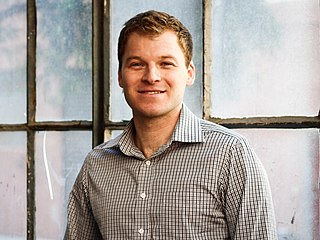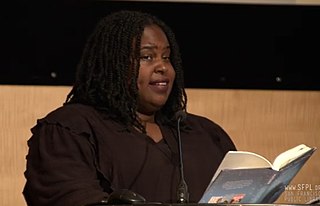A Quote by Donalyn Miller
By believing that only some of our students will ever develop a love of books and reading, we ignore those who do not fall into books and reading on their own. We renege on our responsibility to teach students how to become self-actualized readers. We are selling our students short by believing that reading is a talent and that lifelong reading behaviors cannot be taught.
Related Quotes
What do teachers and curriculum directors mean by 'value' reading? A look at the practice of most schools suggests that when a school 'values' reading what it really means is that the school intensely focuses on raising state-mandated reading test scores- the kind of reading our students will rarely, if ever, do in adulthood.
These days, most of my interactions with young people are centered on the poetry or theater classes I teach, so the students I know are reading contemporary poets (they love Willie Perdomo) and scripts (No Child, by Nilaja Sun and Twilight by Anna Deavere Smith). I don't know their reading habits outside of our class, but I believe that they enjoy stories that they can relate to, learn from, be challenged by - you know, the usual good writing that every reader craves.
Unlike many graduate fellowships, the Rhodes seeks leaders who will 'fight the world's fight.' They must be more than mere bookworms. We are looking for students who wonder, students who are reading widely, students of passion who are driven to make a difference in the lives of those around them and in the broader world.
The academic bias against subjectivity not only forces our students to write poorly ("It is believed...," instead of, "I believe..."), it deforms their thinking about themselves and their world. In a single stroke, we delude our students into believing that bad prose turns opinions into facts and we alienate them from their own inner lives.
Any man will go considerably out of his way to pick up a silver dollar; but here are golden words, which the wisest men of antiquity have uttered, and whose worth the wise of every succeeding age have assured us of; and yet we learn to read only as far as Easy Reading, the primers and classbooks, and when we leave school, the Little Reading, and story books, which are for boys and beginners; and our reading, our conversation and thinking, are all on a very low level, worthy only of pygmies and manikins.
Our singer, Matt, was reading Stephen Hawking and other physics-related books, and I was reading entrepreneurial books, and we all started discussing the new technologies that were taking over the world, from 3-D printing to space travel. These conversations starting leading us to think of how we could portray these things in a musical way.
Lots of kids, including my son, have trouble making the leap from reading words or a few sentences in picture books to chapter books. Chapters are often long... 10 pages can seem like a lifetime to a young reader. Then reading becomes laborious and serious. That's why some of the chapters in my books are very short.
































